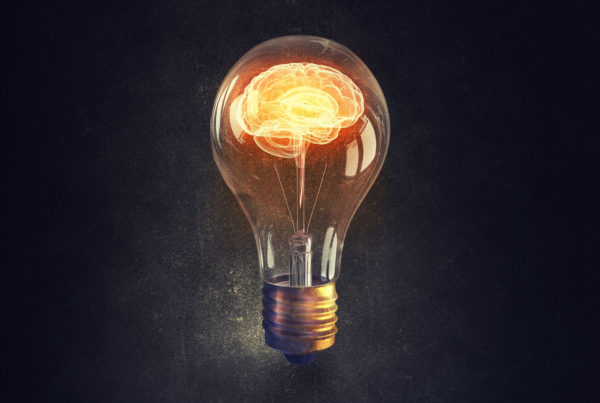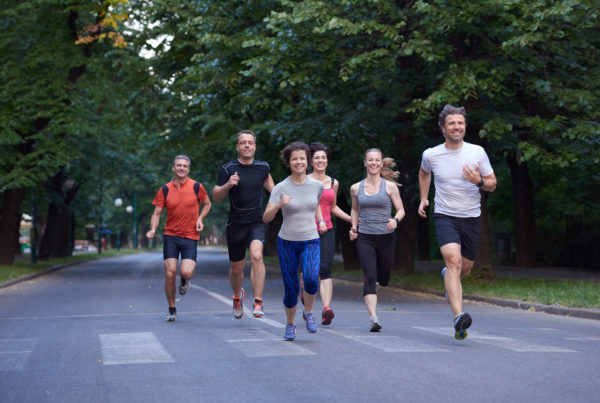”Louisiana, do you think you are empathic? Did you know the skill of empathy can be developed or how much of an impact it can have in your life? Check out this week's article to learn more.
Reading time: 14 Minutes
MWi Hacks:
- Learn how empathy can improve your life, your relationships, and your overall community.
MWi Summary:
- Empathy fosters cooperation, kindness, and tolerance, acting as a psychological “superglue” that connects people. It motivates prosocial actions like forgiveness, helping, and volunteering, while decreasing negative behaviors like aggression and bullying (Jamil Zaki, PhD; Karina Schumann, PhD).
- Empathy can reduce bias, challenge systemic racism, and improve relationships with marginalized groups. For example, increased empathy in teachers can lead to less punitive discipline, and empathy from parole officers can lower reoffending rates (Jason Okonofua, PhD). However, to be effective, empathy must be cultivated thoughtfully and strategically.
- Not all empathy is beneficial. Self-oriented empathy, which focuses on personal distress, can lead to burnout or favoritism. The most helpful empathy is “other-oriented” empathy, where understanding someone’s feelings motivates compassionate actions without overwhelming the individual (Sara Konrath, PhD; Daryl Cameron, PhD).
- Empathy can be developed with effort and a growth mindset. Exposure to diverse perspectives, reading fiction, engaging with different cultures, and asking open-ended questions are effective ways to enhance empathy. Additionally, understanding personal blocks to empathy and practicing self-reflection can improve connection with others (Erika Weisz, PhD; Shereen Naser, PhD).
In a society marked by increasing division, we could all be a bit more kind, cooperative, and tolerant toward others. Beneficial as those traits are, psychological research suggests empathy may be the umbrella trait required to develop all these virtues. As empathy researcher and Stanford University psychologist Jamil Zaki, PhD, describes it, empathy is the “psychological ‘superglue’ that connects people and undergirds co-operation and kindness” (The Economist, June 7, 2019). And even if empathy doesn’t come naturally, research suggests people can cultivate it—and hopefully improve society as a result.
“In general, empathy is a powerful predictor of things we consider to be positive behaviors that benefit society, individuals, and relationships,” said Karina Schumann, PhD, a professor of social psychology at the University of Pittsburgh. “Scholars have shown across domains that empathy motivates many types of prosocial behaviors, such as forgiveness, volunteering, and helping, and that it’s negatively associated with things like aggression and bullying.”
For example, research by C. Daniel Batson, PhD, a professor emeritus of social psychology at the University of Kansas, suggests empathy can motivate people to help someone else in need (Altruism in Humans, Oxford University Press, 2011), and a 2019 study suggests empathy levels predict charitable donation behavior (Smith, K. E., et al., The Journal of Positive Psychology, Vol. 15, No. 6, 2020).
Ann Rumble, PhD, a psychology lecturer at Northern Arizona University, found empathy can override noncooperation, causing people to be more generous and forgiving and less retaliative (European Journal of Social Psychology, Vol. 40, No. 5, 2010). “Empathic people ask themselves, ‘Maybe I need to find out more before I jump to a harsh judgment,’” she said.
Empathy can also promote better relationships with strangers. For example, Batson’s past research highlights that empathy can help people adopt more positive attitudes and helping behavior toward stigmatized groups, particularly disabled and homeless individuals and those with AIDS (Journal of Personality and Social Psychology, Vol. 72, No. 1, 1997).
Empathy may also be a crucial ingredient in mitigating bias and systemic racism. Jason Okonofua, PhD, an assistant professor of psychology at the University of California, Berkeley, has found that teachers are more likely to employ severe discipline with Black students—and that they’re more likely to label Black students as “troublemakers” (Psychological Science, Vol. 26, No. 5, 2015).
These labels, Okonofua said, can shape how teachers interpret behavior, forging a path toward students’ school failure and incarceration. When Okonofua and his colleagues created an intervention to help teachers build positive relationships with students and value their perspectives, their increased empathy reduced punitive discipline (PNAS, Vol. 113, No. 19, 2016).
Similarly, Okonofua and colleagues found empathy from parole officers can prevent adults on probation from reoffending (PNAS, Vol. 118, No. 14, 2021).
In spite of its potential benefits, empathy itself isn’t an automatic path toward social good. To develop empathy that actually helps people requires strategy. “If you’re trying to develop empathy in yourself or in others, you have to make sure you’re developing the right kind,” said Sara Konrath, PhD, an associate professor of social psychology at Indiana University who studies empathy and altruism.
The right kind of empathy
Empathy is often crucial for psychologists working with patients in practice, especially when patients are seeking validation of their feelings. However, empathy can be a draining skill if not practiced correctly. Overidentifying with someone else’s emotions can be stressful, leading to a cardiovascular stress response similar to what you’d experience in the same painful or threatening situation, said Michael J. Poulin, PhD, an associate professor of psychology at the University at Buffalo who studies how people respond to others’ adversity.
Outside of clinical practice, some scholars argue empathy is unhelpful and even damaging. For example, Paul Bloom, PhD, a professor of psychology at Yale University, argues that because empathy directs helping behavior toward specific individuals—most often, those in one’s own group—it may prevent more beneficial help to others (Against Empathy: The Case for Rational Compassion, Ecco, 2016).
In some cases, empathy may also promote antagonism and aggression (Buffone, A. E. K., & Poulin, M. J., Personality and Social Psychology Bulletin, Vol. 40, No. 11, 2014). For example, Daryl Cameron, PhD, an associate professor of psychology and senior research associate in the Rock Ethics Institute and director of the Empathy and Moral Psychology Lab at Penn State University, has found that apparent biases in empathy like parochialism and the numbness to mass suffering may sometimes be due to motivated choices. He also notes that empathy can still have risks in some cases. “There are times when what looks like empathy promotes favoritism at the expense of the outgroup,” said Cameron.
Many of these negative outcomes are associated with a type of empathy called self-oriented perspective taking—imagining yourself in someone else’s shoes. “How you take the perspective can make a difference,” said John Dovidio, PhD, the Carl I. Hovland Professor Emeritus of Psychology and a professor emeritus in the Institute for Social and Policy Studies and of Epidemiology at Yale University. “When you ask me to imagine myself in another person’s position,” Dovidio said, “I may experience a lot of personal distress, which can interfere with prosocial behaviors.” Taking on that emotional burden, Schumann added, could also increase your own risk for distressing emotions, such as anxiety.
According to Konrath, the form of empathy shown most beneficial for both the giver and the receiver is an other-oriented response. “It’s a cognitive style of perspective taking where someone imagines another person’s perspective, reads their emotions, and can understand them in general,” she said.
Other-oriented perspective taking may result in empathic concern, also known as compassion, which could be seen as an emotional response to a cognitive process. It’s that emotion that may trigger helping behavior. “If I simply understand you’re in trouble, I may not act, but emotion energizes me,” said Dovidio.
While many practitioners may find empathy to come naturally, psychologists’ research can help clinicians guide patients toward other-oriented empathy and can also help practitioners struggling with compassion fatigue to re-up their empathy. According to Poulin, people are more likely to opt out of empathy if it feels cognitively or emotionally taxing, which could impact psychologists’ ability to effectively support their patients.
To avoid compassion fatigue with patients—and maintain the empathy required for helping them—Poulin said it’s important to reflect on the patient’s feeling or experience without necessarily trying to feel it yourself. “It’s about putting yourself in the right role,” he said. “Your goal isn’t to be the sufferer, but to be the caregiver.”
Be willing to grow
Cameron’s research found that the cognitive costs of empathy could cause people to avoid it but that it may be possible to increase empathy by teaching people to do it effectively (Journal of Experimental Psychology: General, Vol. 148, No. 6, 2019).
Further, research by Schumann and Zaki shows that the desire to grow in empathy can be a driver in cultivating it. They found people can extend empathic effort—asking questions and listening longer to responses—in situations where they feel different than someone, primarily if they believe empathy could be developed with effort (Journal of Personality and Social Psychology, Vol. 107, No. 3, 2014).
Similarly, Erika Weisz, PhD, a postdoctoral fellow in psychology at Harvard University, said that the first step to increasing your empathy is to adopt a growth mindset—to believe you’re capable of growing in empathy.
“People who believe that empathy can grow try harder to empathize when it doesn’t come naturally to them, for instance, by empathizing with people who are unfamiliar to them or different than they are, compared to people who believe empathy is a stable trait,” she said.
For example, Weisz found addressing college students’ empathy mindsets increases the accuracy with which they perceive others’ emotions; it also tracks with the number of friends college freshmen make during their first year on campus (Emotion, online first publication, 2020).
Expose yourself to differences
To imagine another’s perspective, the more context, the better. Shereen Naser, PhD, a professor of psychology at Cleveland State University, said consuming diverse media—for example, a White person reading books or watching movies with a non-White protagonist—and even directly participating in someone else’s culture can provide a backdrop against which to adopt someone else’s perspective.
When you’re in these situations, be fully present. “Paying attention to other people allows you to be moved by their experiences,” said Sara Hodges, PhD, a professor of psychology at the University of Oregon. “Whether you are actively perspective-taking or not, if you just pay more attention to other people, you’re likely to feel more concerned for them and become more involved in their experiences.”
For example, in a course focused on diversity, Naser encourages her graduate students to visit a community they’ve never spent time in. “One student came back saying they felt like an outsider when they attended a Hindu celebration and that they realized that’s what marginalized people feel like every day,” she said. Along with decreasing your bias, such realizations could also spark a deeper understanding of another’s culture—and why they might think or feel the way they do.
Read fiction
Raymond Mar, PhD, a professor of psychology at York University in Toronto, studies how reading fiction and other kinds of character-driven stories can help people better understand others and the world. “To understand stories, we have to understand characters, their motivations, interactions, reactions, and goals,” he said. “It’s possible that while understanding stories, we can improve our ability to understand real people in the real world at the same time.”
When you engage with a story, you’re also engaging the same cognitive abilities you’d use during social cognition (Current Directions in Psychological Science, Vol. 27, No. 4, 2018). You can get the same effect with any medium—live theater, a show on Netflix, or a novel—as long as it has core elements of a narrative, story, and characters.
The more one practices empathy (e.g., by relating to fictional characters), the more perspectives one can absorb while not feeling that one’s own is threatened. “The foundation of empathy has to be a willingness to listen to other peoples’ experiences and to believe they’re valid,” Mar said. “You don’t have to deny your own experience to accept someone else’s.”
Harness the power of oxytocin
The social hormone oxytocin also plays a role in facilitating empathy. Bianca Jones Marlin, PhD, a neuroscientist and assistant professor of psychology at Columbia University, found that mice that had given birth are more likely to pick up crying pups than virgin animals and that the oxytocin released during the birth and parenting process actually changes the hearing centers of the brain to motivate prosocial and survival behaviors (Nature, Vol. 520, No. 7548, 2015).
Oxytocin can also breed helping responses in those who don’t have a blood relationship; when Marlin added oxytocin to virgin mice’s hearing centers, they took care of pups that weren’t theirs. “It’s as if biology has prepared us to take care of those who can’t take care of themselves,” she said. “But that’s just a baseline; it’s up to us as a society to build this in our relationships.”
Through oxytocin-releasing behaviors like eye contact and soft physical touch, Marlin said humans can harness the power of oxytocin to promote empathy and helping behaviors in certain contexts. Oxytocin is also known to mediate ingroup and outgroup feelings.
The key, Marlin said, is for both parties to feel connected and unthreatened. To overcome that hurdle, she suggests a calm but direct approach: Try saying, “I don’t agree with your views, but I want to learn more about what led you to that perspective.”
Identify common ground
Feeling a sense of social connection is an important part of triggering prosocial behaviors. “You perceive the person as a member of your own group, or because the situation is so compelling that your common humanity is aroused,” Dovidio said. “When you experience this empathy, it motivates you to help the other person, even at a personal cost to you.”
One way to boost this motivation is to manipulate who you see as your ingroup. Jay Van Bavel, PhD, an associate professor of psychology and neural science at New York University, found that in the absence of an existing social connection, finding a shared identity can promote empathy (Journal of Experimental Social Psychology, Vol. 55, 2014). “We find over and over again when people have a common identity, even if it’s created in the moment, they are more motivated to get inside the mind of another person,” Van Bavel said.
For example, Van Bavel has conducted fMRI research that suggests being placed on the same team for a work activity can increase cooperation and trigger positive feelings for individuals once perceived as outgroup, even among different races (Psychological Science, Vol. 19, No. 11, 2008).
To motivate empathy in your own interactions, find similarities instead of focusing on differences. For instance, maybe you and a neighbor have polar opposite political ideologies, but your kids are the same age and go to the same school. Build on that similarity to create more empathy. “We contain multiple identities, and part of being socially intelligent is finding the identity you share,” Van Bavel said.
Ask questions
Existing research often measures a person’s empathy by accuracy—how well people can label someone’s face as angry, sad, or happy, for example. Alexandra Main, PhD, an assistant professor of psychology at the University of California, Merced, said curiosity and interest can also be an important component of empathy. “Mind reading isn’t always the way empathy works in everyday life. It’s more about actively trying to appreciate someone’s point of view,” she said. If you’re in a situation and struggling with empathy, it’s not necessarily that you don’t care—your difficulty may be because you don’t understand that person’s perspective. Asking questions and engaging in curiosity is one way to change that.
While Main’s research focuses on parent-child relationships, she says the approach also applies to other relationship dynamics; for example, curiosity about why your spouse doesn’t do the dishes might help you understand influencing factors and, as a result, prevent conflict and promote empathy.
Main suggests asking open-ended questions to the person you want to show empathy to, and providing nonverbal cues like nodding when someone’s talking can encourage that person to share more. Certain questions, like ones you should already know the answer to, can have the opposite effect, as can asking personal questions when your social partner doesn’t wish to share.
The important thing is to express interest. “These kinds of behaviors are really facilitative of disclosure and open discussion,” Main said. “And in the long term, expressing interest in another person can facilitate empathy in the relationship” (Social Development, Vol. 28, No. 3, 2019).
Understand your blocks
Research suggests everyone has empathy blocks, or areas where it is difficult to exhibit empathy. To combat these barriers to prosocial behavior, Schumann suggests noticing your patterns and focusing on areas where you feel it’s hard to connect to people and relate to their experiences.
If you find it hard to be around negative people, for example, confront this difficulty and spend time with them. Try to reflect on a time when you had a negative outlook on something and observe how they relate. And as you listen, don’t interrupt or formulate rebuttals or responses.
“The person will feel so much more validated and heard when they’ve really had an opportunity to voice their opinion, and most of the time people will reciprocate,” Schumann said. “You might still disagree strongly, but you will have a stronger sense of why they have the perspective they do.”
Second-guess yourself
Much of empathy boils down to willingness to learn—and all learning involves questioning your assumptions and automatic reactions in both big-picture issues, such as racism, and everyday interactions. According to Rumble, it’s important to be mindful of “what-ifs” in frustrating situations before jumping to snap judgments. For example, if a patient is continually late to appointments, don’t assume they don’t take therapy seriously––something else, like stress or unreliable transportation, might be getting in the way of their timeliness.
And if you do find yourself making a negative assumption, slow down and admit you could be wrong. “As scientists, we second-guess our assumptions all the time, looking for alternative explanations,” said Hodges. “We need to do that as people, too.”
Cultivating empathy. Retrieved from https://www.apa.org/monitor/2021/11/feature-cultivating-empathy




